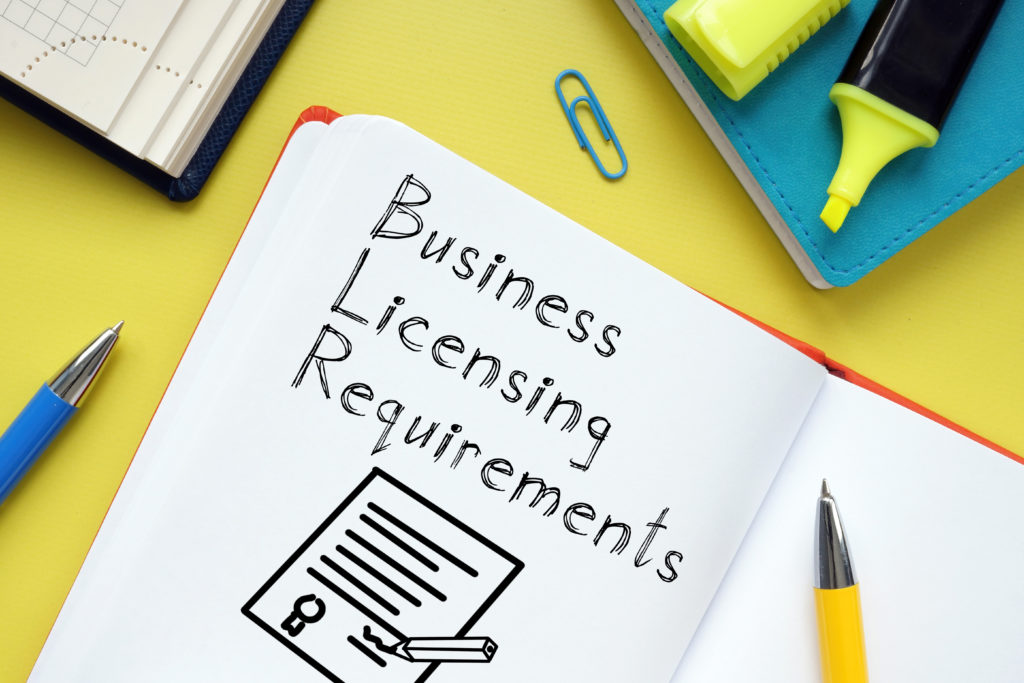
Estimated reading time: 4 minutes
There are many requirements involved in starting a business. One of these requirements is a business license. It is important to note that all types of startup companies—including home-based businesses, brick and mortar companies, and remote organizations—require state business licenses. In some cases, there may be only local business licenses requirement. These licenses prove that a business is legally allowed to operate in a particular state.
While every state mandates business owners to have at least one type of license, this type is dependent on your particular business, such as a sole proprietor, partnership, LLC, or corporation.
For example, restaurants require several licenses and inspections to ensure compliance with regulations set by the industry. Additionally, commercial real estate rules require zoning permits or certification to ensure compliance.
Applying for a State Business License
While business license requirements vary from state to state they also depend on business activity, business location, and business structure. Most will also require an Employer Identification Number (EIN) from the IRS, this number, which is very similar to a Social Security Number, it’s important for filing taxes and opening business bank accounts. Be sure to conduct research on what your state or local government requires to ensure you have all of the necessary documentation your business needs. This will expedite the application process and ensure you do not get charged for missing or incorrect documentation.
Business Licensing Resources
Below are several resources that can help guide new businesses through the business license application process:
- U.S. Small Business Administration (SBA.gov) provides information on the federal licenses and permits needed for various industries. This site allows you to enter your zip code to receive details relevant to your geographic area.
*Small Business Advice (SBA.com) offers information on creating a business, such as helpful details on business permits and state licensing rules.
*Town and city clerk offices can be extremely helpful. Because some required permits and licenses are based at the city level, contacting your city clerk can be beneficial when it comes to understanding each required license and the process needed to obtain these.
*State-specific licensing information is important to obtain. No two states are alike when it comes to registering for a business license, and each state has different requirements. Consequently, it is vital to grasp what your specific state requires.
Below is a reference guide with direct links to each state website. Just scroll down and tap the link next to your particular state to get full details on what type of business license you will need in your area:
Keep in mind that in some states, it can take several weeks to receive approval. As a result, do not waste any time. Apply for your business licenses immediately. In fact, some states do not allow small business owners or entrepreneurs to open their doors without fulfilling these requirements, which can delay your hiring practices and opening timeline. Additionally, there are costs associated with these licenses, so be prepared and never let any of your licenses expire.
Before getting your business license, be sure to register your LLC or Corporation with the state. Our business startup advisors are ready to assist you. Or file your business online in three simple steps. Form your FREE LLC today!